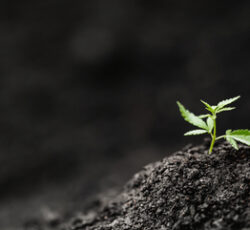
Vineyards are not only beautiful landscapes but also important agricultural ecosystems that require careful management. To ensure the long-term success and sustainability of vineyards, it is crucial to prioritize soil health and adopt organic pest management practices. In this blog post, we will explore some best practices for promoting soil health and implementing organic pest management in vineyards. By following these practices, vineyard owners can reduce the reliance on synthetic inputs and create a more environmentally friendly and resilient vineyard ecosystem.
Building Healthy Soil
Healthy soil is the foundation of a thriving vineyard. It provides necessary nutrients, water retention, and support for plant growth. To enhance soil health, vineyard owners should focus on the following practices:
1. Soil Testing: Regular soil testing is essential to determine the nutrient levels and pH of the soil. Based on the results, appropriate amendments can be added to balance the nutrient content and pH.
2. Organic Matter: Incorporating organic matter, such as compost or cover crops, into the soil improves its structure, water-holding capacity, and nutrient availability.
3. Mulching: Apply organic mulch, such as straw or wood chips, around the base of the vines to suppress weeds, retain moisture, and regulate soil temperature.
4. Minimum Tillage: Reduce tillage to minimize soil erosion and prevent disturbance of soil structure and beneficial microorganisms.
Encouraging Natural Pest Control
Organic pest management focuses on preventing and managing pests using natural and environmentally friendly methods. Here are some practices to implement in vineyards:
1. Integrated Pest Management (IPM): Adopt an integrated pest management approach that involves monitoring pest populations, identifying beneficial insects, and using appropriate interventions only when necessary.
2. Beneficial Insects: Encourage beneficial insects, such as ladybugs and lacewings, by planting companion plants and providing habitat through cover crops and flowering plants.
3. Trap Crops: Plant trap crops, such as marigolds or clover, to divert pests away from the vines and protect the main crop.
4. Natural Predators: Maintain a diverse ecosystem by preserving natural habitats, such as hedgerows or wildflower strips, to support populations of beneficial predators that can help control pest populations.
5. Disease-resistant Varieties: Select grapevine varieties that are naturally resistant to common diseases in your region, reducing the need for chemical interventions.
6. Crop Rotation: Rotate cover crops and other non-host plants to disrupt pest life cycles and reduce their populations.
Monitoring and Early Detection
Regular monitoring is vital for early detection of pest infestations or disease outbreaks. By closely observing the vines and conducting regular inspections, vineyard owners can take timely action and prevent further damage. Some monitoring practices include:
1. Scouting: Regularly walk through the vineyard and visually inspect the plants for any signs of pests or diseases, such as leaf discoloration, chewed leaves, or webbing.
2. Traps: Install pheromone traps to monitor pest populations and detect any changes in numbers.
3. Record-keeping: Maintain accurate records of pest and disease incidences, weather conditions, and any interventions implemented. This information is valuable for future decision-making and evaluating the effectiveness of pest management strategies.
Collaboration and Education
Creating an environmentally sustainable vineyard requires collaboration and continuous learning. Here are some actions to foster collaboration and education within the vineyard community:
1. Networking: Engage with other vineyard owners, participate in industry events, and join local grower associations to exchange ideas, experiences, and best practices.
2. Workshops and Training: Attend workshops and training sessions focused on organic and sustainable vineyard management. These events provide valuable insights and practical knowledge necessary for implementing best practices.
3. Research and Extension Services: Stay updated on the latest research and extension services related to organic vineyard management. Collaboration with university researchers and extension services can provide valuable guidance and access to cutting-edge knowledge.
4. Certifications: Consider pursuing organic or sustainable certifications that can demonstrate your commitment to environmental stewardship and differentiate your vineyard in the market.
Summary
By implementing these best practices for soil health and organic pest management, vineyard owners can cultivate thriving vineyards while minimizing the environmental impact. Promoting soil health, encouraging natural pest control, monitoring closely, and fostering collaboration and education will contribute to the long-term sustainability of vineyard ecosystems. As caretakers of these precious landscapes, vineyard owners can lead the way towards a more sustainable and resilient future for the wine industry.
Need Soil Testing in Pasco, WA?
Founded in 1992, Custom Orchard Fumigation was created by farmers for farmers. We take great pride in providing soil fumigation services to farmers throughout the state. We can also help growers find other services to help in growing their crops. We also provide all paperwork for our services to ensure all regulations are met. Our founder, Chris Ford, has a background in Forest Management, and we are conscious of reducing the environmental impact on the soil and surrounding areas of your plot. Custom Orchard Fumigation invites you to visit our website or give us a call today!
